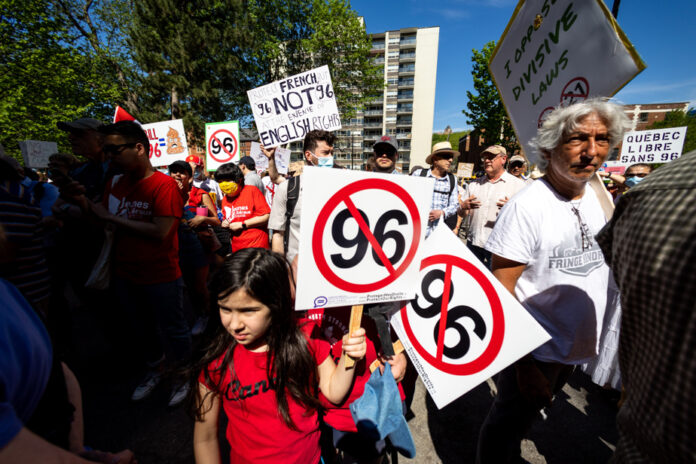When you travel to visit friends in Vancouver, do you change your name from Stéphane to Steven, or do you introduce yourself to your new English-speaking acquaintances as April, instead of Avril?
The answer is probably “no,” and rightly so. Your name uniquely identifies you, with your own characteristics and qualities, and is part of who you are. Your name may represent your cultural or family heritage or allude to a historical event, place or person. Your name has value and is inseparable from your reputation and how others perceive you.
The same goes for brands. A brand identifies a company, its characteristics, its unique qualities and is an integral part of the customer experience. A company’s brand often embodies its heritage. A brand also has value, often linked to its reputation, its power to attract customers, its notoriety in the market and its ability to distinguish itself from other brands.
So, if it is not acceptable for someone in Ontario to ask you to change your name to reflect the English equivalent, why then should it be acceptable in Quebec to require it of a trademark?
Yet this is what some are asking for, sometimes even going further than what the Charter of the French Language would require, whether in its current version or as amended by Law 96, when some of the changes come into effect. effective in 2025. Some experts have called for all trademarks currently used in English to be translated into French, even if this fundamentally changes the character of the trademark, under the pretext of respecting the French language. This goes against existing trademark law and creates potential commercial concerns for Quebec and Canada as a whole, all in the name of respecting the French language.
Creating a new brand in another language isn’t just about translating words from one language to another. Care must be taken to ensure that the new brand does not conflict with other existing brands and trade names. New marketing campaigns need to be developed to inform consumers of the change. Consumers might not like or recognize the brand’s version in another language. Without forgetting that commercial strategies will then have to reflect the fact that several versions of the brand exist. All of this can compromise a company’s ability to interact effectively with consumers and its customers.
Of course, some companies have chosen to Frenchify their brands, which is their choice. But just as an immigrant arriving in Canada should not be forced to “Canadianize” their name upon arrival, and just as you would not want to be forced to Anglicize your name when traveling to Toronto, Calgary or Halifax, businesses do not should not be forced to do so when they settle in Quebec.
Quebec’s current and new language laws present complex challenges to businesses operating in several provinces of Canada and internationally. These laws must be written and applied so that businesses can navigate them and Quebec consumers can benefit from the variety and choice of products they deserve. However, if companies must ensure that Quebec consumers have the necessary information in French to make informed purchasing decisions, this must not and should not go as far as a general obligation to Frenchify all aspects of the brand, simply because the brand can be presented in French.
Businesses must collaborate with consumers and the Quebec government to find the right balance between respect for culture, individuality, identity and economic growth to create an environment favorable to business and prosperous consumption. and welcoming to everyone in Quebec. New regulations will be released in the coming weeks or months for public comment. We invite anyone concerned about the desire to force businesses to Frenchify their brand to carefully examine the proposed requirements and to share their comments with the Office québécois de la langue française (OQLF) and representatives of the Ministry.















